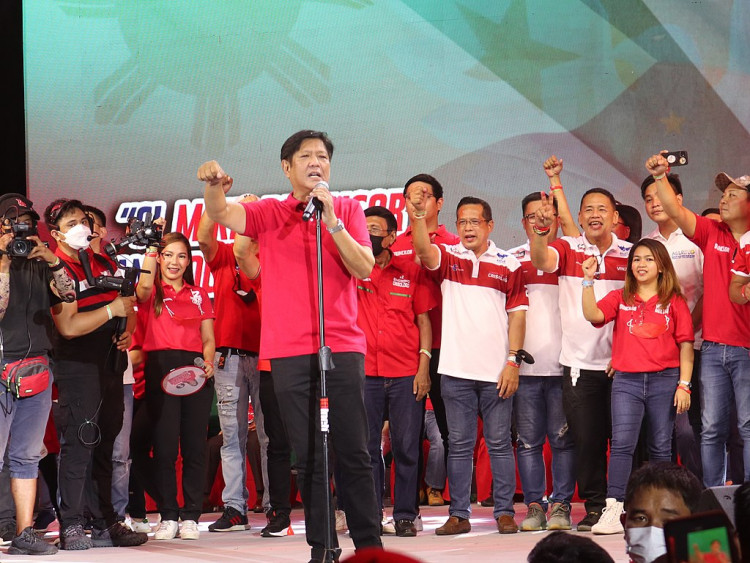Ferdinand Marcos Jr. has been sworn in as the 17th President of the Republic of the Philippines in front of hundreds of local and foreign dignitaries, as well as the media, at a public ceremony at the National Museum in Manila.
For the inauguration, more than 15,000 police, troops, and coast guard members have been stationed throughout the capital.
Marcos Jr. has said he wants to pursue a more balanced relationship with the two giants, in contrast to Duterte who turned away from the U.S. and toward China.
Last month, Marcos Jr. declared he would pursue a "friends to all, enemies to none" foreign strategy.
The COVID-19-ravaged economy is being squeezed by skyrocketing inflation, and Marcos Jr. has declared decreasing inflation, fostering growth, and increasing food production his top priority.
In an unprecedented move, he appointed himself secretary of agriculture to oversee the reform of the troubled industry.
The rights of the Philippines to the disputed South China Sea, which Beijing claims pretty much exclusively, have also been sworn to be preserved by Marcos Jr.
But after generally avoiding media interviews, he has disclosed very little information about how he plans to accomplish his objectives or suggestions about his leadership style.
Rigoberto Tiglao, a pro-Duterte analyst, recently stated that he was "optimistic" about an "economic boom" under Marcos Jr.
Tiglao cited the "distinguished academicians" on Marcos Jr.'s economic team and the backing of "strong magnates," who will be able to advise him and provide him with resources.
Marcos Jr., who resembles Duterte more in terms of aesthetics and competence, was elected president with the aid of a massive social media propaganda campaign.
Filipinos were inundated by pro-Marcos organizations with false or deceptive posts that painted the family in a favorable light while omitting the corruption and human rights violations during the patriarch's 20-year tenure.
Sara Duterte, who secured the vice-presidential office with more votes than Marcos Jr., and the endorsement of contending dynasties were essential to his triumph.
Although activists and religious leaders worry that Bongbong would exploit his triumph to consolidate his authority, most people anticipate that he will be less aggressive and more reliable than the elder Duterte.
Leftist alliance Bayan cautioned that Marcos Jr. was "extremely likely" to carry on the dictatorship's sinister legacy throughout his reign since he refused to acknowledge the wrongdoings and excesses of the past and even praised it as the "golden years."
Most Cabinet seats have been filled by him. But his wife Louise, who claims to have no interest in joining his government but is largely considered to have led his campaign, will probably be the most important adviser during his six-year term.
The Philippines has a "huge opportunity that we may be moving forward and ahead of the pack," according to Sergio Ortiz-Luis, president of the Employers Confederation of the Philippines.
Unlike Duterte, however, he insisted on upholding an international ruling against Beijing in the resource-rich South China Sea.
While he has supported Duterte's drug war, which has resulted in the deaths of thousands of mostly poor men, he is unlikely to enforce it as aggressively.





